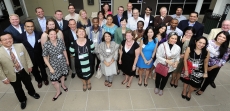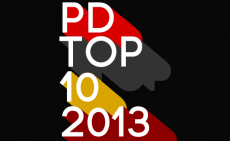The CPD Blog is intended to stimulate dialog among scholars and practitioners from around the world in the public diplomacy sphere. The opinions represented here are the authors' own and do not necessarily reflect CPD's views. For blogger guidelines, click here.
In Propaganda: Power and Persuasion, David Welch examines how states have informed and influenced individuals over the past century. Though propaganda is far from new, governments’ programming has become more pervasive than ever following the rise of the mass media. In this book, Welch traces this development and identifies propaganda’s most effective channels and tactics.

This edition of Perspectives is a two-part analysis of the BBC’s function as an instrument of British diplomacy.
Appearing on Participant Media’s digital platform TakePart Live, CPD Assistant Director for Research and Publications Naomi Leight discussed the long-term effects of the Arab Spring. Noting that “democracy is a process,” Leight emphasized that true democratization takes decades, and that Arab governments should be modeled on Arab—rather than Western—principles.
Speaking to “The Monocle Daily” in a live interview segment on January 15, CPD Director Jay Wang discussed our 2013 “Top 10 Stories in PD” list. He mentioned that 2013 saw a great deal of PD by non-traditional actors, a trend he expects to continue in 2014. Specifically, Wang discussed Pope Francis, Facebook, and Russian president Vladimir Putin, among others. Looking ahead, Wang sees emerging trends in the growing importance of e-diplomacy. The interview with CPD begins at minute 17 in episode 573.

CPD's 2014 Summer Institute (July 20 - August 1) is now full.

CPD announces the 10 most significant public diplomacy stories of 2013 as part of its review of global trends that are shaping the field.
Kim Ghattas has been the BBC’s State Department correspondent since 2008, and is the author of The Secretary: A Journey with Hillary Clinton from Beirut to the Heart of American Power. Speaking with CPD, she shared her observations on Clinton’s diplomatic style and grace under pressure.
The Goethe Institute has hosted a panel entitled “The Currency of Cultural Diplomacy,” where cultural experts discussed the role of Western cultural institutions in promoting Middle Eastern culture, with a focus on Egypt. The speakers addressed the complex issues that non-state actors encounter when they conduct intercultural diplomacy, including the impact of globalization on artistic production. More fundamentally, the panel considers what the diplomatic responsibilities of international cultural organizations actually are.
Pages
POPULAR ARTICLES
-
June 5
-
June 18
-
June 6
-
June 5
-
June 19
-
June 11
-
June 5
-
June 5
Featured Blogger
Join the Conversation
Interested in contributing to the CPD Blog? We welcome your posts. Read our guidelines and find out how you can submit blogs and photo essays >.








